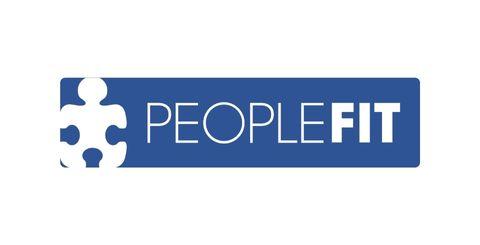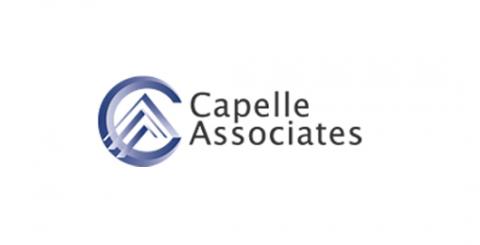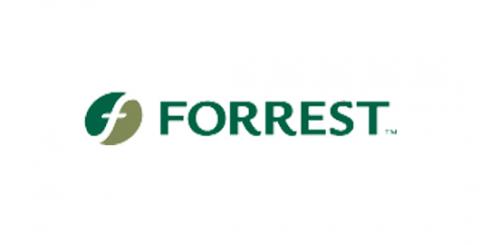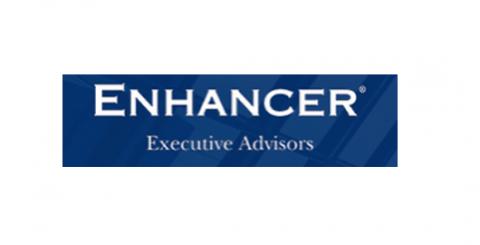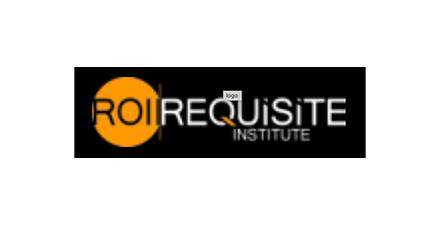
Levels of work in hospital redevelopment - From substandard to excellent performance
A video Interview produced by Warren Kinston for the 2014 Conference
In this video he explains his approach as "achievement via systematic management". Levels of work¹ this approach, with its primary value being role design, matching roles to personal capability, and effective accountability.
However, it is helpful to recognize the dynamic operation of accountability in order to drive what actually needs to happen within an organization² between L5 and L3.
He found it essential to apply the framework in conjunction with other methods and tools to get the best results.
In regard to purposes and values, the work-levels framework is primarily focused on operational outcomes and accountability. However, he believes that achievement over time requires attention to growth, culture and vision.³
In his experience, the development of management takes place in stages. On entering an organization, John experiences an initial need to be pragmatic prior to applying structural values. At this point work-levels are one crucial aspect that must be complemented by a focus on professional expertise and functional organization, as well as the design of teams and meetings.
Once the organization is well-structured and appropriately staffed, further strengthening of the management culture is necessary using dialectic, rationalist and other approaches.4
As well as levels-based capability assessments, John sees a need to identify distinctive decision-styles as part of the role-matching requirement.5
He also draws attention to an additional framework that identifies different ways that people interact socially. This framework is necessary to understand and manage tricky relationships, especially those dealing with power6
1. http://www.thee-online.com/mywebhelp/Content/9. Work-and-Responsibility/B. Organizational Work/2.1 Org Levels Overview.htm
2. http://www.thee-online.com/mywebhelp/Content/9. Work-and-Responsibility/B. Organizational Work/2.4.6 Review Full Picture.htm
3. Tables 28 & 34 in: http://www.thee-online.com/mywebhelp/Content/8. Purpose-and-Value/0. Intro/1.1 Download Here.htm
4. http://www.thee-online.com/mywebhelp/Content/6. Deciding-and-Achieving/D Management Culture/4.0.2 The Spiral Trajectory.htm
5. http://www.thee-online.com/mywebhelp/Content/6. Deciding-and-Achieving/A Get Oriented/0.1 Foundation Framework.htm
6. http://www.thee-online.com/mywebhelp/Content/4. Interacting-for-Benefit/b. Approaches to Interaction/2.0 Overview of the 7 Mentalities.htm
Speaker A is Warren Kinston Speaker B is John Watkinson Speaker A Hello, John. Thanks for coming along to talk about management and your experience with levels of work. Speaker B My pleasure. Spea...
Transcript of the presentation video
NOTE: This transcript of the video was created by AI to enable Google's crawlers to search the video content. It may be expected to be only 96% accurate.
Speaker A is Warren Kinston
Speaker B is John Watkinson
Speaker A Hello, John. Thanks for coming along to talk about management and your experience with levels of work.
Speaker B My pleasure.
Speaker A Let's start with the most general question of all. What is levels of work about for you?
Speaker B It's about achievement through systematic management. In the organizations that I was chief executive of in the National Health Service, I used levels of work as a tool, one tool, but obviously not the only tool, to ensure that they were high performing and high achieving organisations for patients, the public and indeed for themselves.
Speaker A When you say achievements, I mean, what sort of achievements would you yeah, well.
Speaker B I was chief executive of three different organisations in the National Health Service kings Mill Hospital in North Nottinghamshire, bromley in London and the Royal Cornwall Hospitals Trust in Cornwall. And each one of those was a challenged organization when I went to it. Indeed, Cornwall was the worst performing trust in the NHS and I improved the function by the time I'd left, I'd improved the functioning and performance of those organizations significantly. In particular, in relation to two of the organisations, Kings Mill and Bromley, I made them three star trusts. And I'm a member of a small group of NHS chief executives who have managed to deliver more than one three star trust in the old performance framework in terms of the performance of their organizations. Pro Kings Mill hospital, which subsequently became Kings Mill Center. That became an award winning organization. And in 1996, we won the Team of the Year award for our work on urgent care continuity. And in 1998, we won the welcomed BLACKSo Innovation Award in Primary care for our work with Oloton practice.
Speaker A So how would you say levels of work specifically is related to those achievements?
Speaker B Well, it creates a framework for thinking about responsibility in roles and a strong view of accountability relations. It helps in assessing capability against a job to match, to make sure you've got a good match between applicants and jobs. And it helps to integrate purposes with responsibilities so that one could assure the delivery of objectives and purposes through roles and responsibilities and the people within them. But of course, achievement requires a lot more than just levels of work. I say just levels of work, but a focus on levels of work, it needs more than that. And I would say, for example, it's very important to have the skeleton, but then we need to make the skeleton work and to dynamize that. And one of the examples I would give to add is work across level five and three on program installation. Something that we recognize a channel that needs to be activated by the chief executive to go down to level three to make sure that what's being said at level four is true and that in reality, we are getting systems, we are getting improved quality. So we have the levels of work very important. But also we need to work across levels and dynamize that to get true achievement.
Speaker A So does that mean when you first enter an organization that you always implement levels of work?
Speaker B No, actually rarely. I think to start initially when one gets into an organization, one's faced with the inevitable crises of a challenged organization and chief executives are expected to perform. And indeed, the first hundred days or the first few months of chief Executive Tenure you do have a significant opportunity to make an impact and you have to be seen to make an impact and solving problem. You can't wait for levels of work to be introduced, you have to do it in parallel. But I think the key priority is to work through pragmatic action and to start resolving some of the crises that one's inherited often before levels of work is introduced.
Speaker A I mean can you give an example?
Speaker B Yes, I can. Royal Como Hospitals Trust I think, was perhaps the best example of as I said, I inherited the worst performing recognized the worst performing trust in England and when I got there I found there were crises in almost every situation. There was a financial cris, for example, there was a staff morale crisis, there was a community confidence crisis, there was a medical records project that was in deep difficulties, for example. So almost everywhere one looked in the organization there were problems and issues and it simply wouldn't have been acceptable for a chief executive to say well, I need to wait to introduce levels of work and get roles and responsibilities clear and bring in new people. I had to basically get stuck in and sort some of these problems out. So you have to be seen to be doing that in tandem with introducing new more systematic modes to move the organization on. But really, as we've always said, chief executives are always going to be judged on action to solve problems and create achievement in the organization.
Speaker A So you have to start with levels with pragmatic handling but then you do always move on to getting the structures set up correctly via levels of work?
Speaker B Absolutely, yeah, you need to move on to getting levels of work in place to clarify roles and responsibilities and also there are many other values that are involved in that phase, structuralist phase, not just at levels of work. For example it's very important to have a focus on professional capability, professional responsibility, to assure quality across an organization like the National Health Service which is multi professional. It's important to focus on procedural control and systems at all levels in the organisation but particularly at level three just above the operations to ensure get it right first time every time for patients. And it's important to have appropriate teams and meetings in place to work in tandem with levels of work and the other mat systems and professional capability to make sure that the overall organization functions better. As you move into that second structuralist.
Speaker A Phase you have accountable expert leadership in place. Does that ensure achievement?
Speaker B It's one part of securing achievement and focuses very much on the operations. But there is a model of domains of functioning. There are four domains of functioning which chief executives and organizations need to need to operate in reforming the operations as one and it's often the one that's focused onto the exclusion of others. But cultural development around the spiral that we talked about, that I've mentioned, getting more and more sophisticated forms of styles of management is a key part identity, clarifying the identity of an organization, what business are we in and what we're not in. That's a key part of functioning and also an area called growth where you build on strength of the organization and those four domains of functioning need to be imbalanced, working across together, not just focusing on one at the expense of the others to ensure to secure sustainable and long term improvements in efficiency.
Speaker A So achievement depends upon growth as much as well functioning operations, it depends on culture and the values in the organization in general and it depends upon having a vision.
Speaker B Absolutely. Just to say that's right, they're important. And just to give an example of the identity and work that we did on that at King's Mill we had a participatory exercise right throughout the organisation to clarify what work should we be in and what work weren't we in and what was the essence of the organization, what was the mission of the organization. And what became clear was we were a specialist center for healthcare, we weren't just a hospital. Already much of the care was provided in primary care or there was education to primary care or outreach work already clinicians were working in that way but the organization's structure didn't reflect that and identity didn't reflect that. So we renamed and reconceived the organization as the Kings Mill Center for Healthcare Services. Actually years ahead of what is current thinking now, which is the age of the DGH has finished well in 1996, we'd seen that and we'd identified the center. And it was that role as the center for healthcare services that won us that innovation prize, working with primary care.
Speaker A Right. So within a well functioning structure, so the operations are effective with attention being given to development, culture and to a vision. Can you, as it were, sit back and enjoy the fruits of management?
Speaker B No, you can't, because it is a dynamic situation and one phase of improvement leads inexorably to another one and if you don't give attention to managing that you can actually regress. So the structuralist phase we introduce very strong people, very strong professions, they can start to rub together and there can be conflicts and if they're not handled and managed in a proper way you can get serious problems inside the organization. So, as I mentioned, the dialectic phase, the next one, where people work together better, leads to a desire for more optimal achievement, optimizing achievement. Better focus on objectives and values. The rationalist phase. And then that in turn, the drive for its achieving objectives. More and more demands for information. Moving to the empiricist phase, a much better valuing of information. And I think that we got to rationalist moving on to Empiricist. By the time I'd left it, I'd finished my tenure in Kings Mill Centre.
Speaker A Our audience wants me to focus on levels of work. So I just have to ask you a little bit about capability and matching work capability to a role that's very important. Would you say that captures what's required?
Speaker B It captures a lot of what's required. But there's an additional dimension, which is decision style, that individuals have their own preferred and optimum decision style and that needs to be recognized and matched to the requirements of the job and indeed, the stage of the organization. So that one can extract, one can get optimum performance and achievement from individuals in the organization generally. So there's a further framework that's required.
Speaker A To be not every role can cope with every decision.
Speaker B Absolutely, yes. And some role, for example, an obvious one, will be a finance director needs to have an Empiricist decision style or be comfortable with an Empiricist decision style for him to be an effective finance director.
Speaker A It's clear that achieving is always a challenge. Management is complicated, it requires many tools. Also, you're a natural leader. In your experience, what is the biggest challenge to achievement?
Speaker B Well, you introduced me to a framework which deals with how people interact in social situations wider than organizational base, but relevant to organization. And within that there are various modes of modes that are important. The one that I found to be most challenging was the power mode where people basically function through intimidation, threats and so on. And it can be a very significant challenge to an organizational leader, an organization who's trying to adopt and implement a systematic approach to management. And I found that some people had people in the organization who operated in a power centre way. The system itself started to do that and that was probably the biggest challenge I ever faced to continuing and improving achievement for patients in the NHS.
Speaker A Thanks a lot, John. I appreciate your contribution.
Speaker B Take care.


Major organizations and consulting firms that provide Requisite Organization-based services




